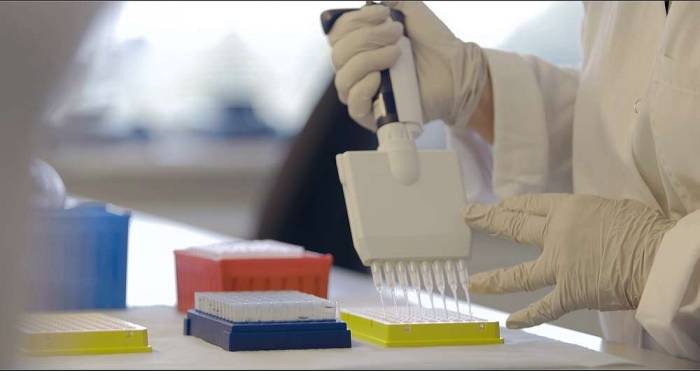But in a time of the Facebook and Cambridge Analytica scandal, other data breaches, and the GDPR, it’s also natural to wonder: What happens when I share my genetic information—a biological sample—with companies?
Here’s the short answer: With the three companies we spoke with, none of them will share your genetic data with others for research purposes unless you explicitly opt in, and even then, that data will be de-identified—meaning any outside organization that sees it, in any form, won’t know it came from you. And in all cases, if you are an existing customer, you can contact the company and ask them to delete your account, your genetic data, and even throw out the sample you mailed them.
Curious to know more about each company—what they share with others, and how to delete your data? Here’s a breakdown.
Living DNA
Living DNA, a company based in Frome, England, offers a genetics testing service that they advertise as highly detailed while at the same time putting an emphasis on privacy. Of the three companies we spoke with, it is the only one that does not share research data with at least one separate, for-profit company.
“We do not sell your data,” says David Nicholson, Living DNA’s cofounder. “We do not work with pharmaceutical companies.”
Customers can choose to opt into a research project run by the company, though, and if they do, their data could be included in it. In that case, the information would be de-identified and aggregated with other information from other people. That investigation is focused on “mapping of the world DNA” and involves “working with academic institutions,” Nicholson says. Any customer who opts into that research can subsequently choose to remove themselves from future study later, but data that the company has already folded into the research cannot be extracted. Anyone who wants to know more about this study can read more here.
Living DNA is a for-profit company (like the others in this story), so their page describing their research does contain this disclaimer: “This may result in patents and other intellectual property for Living DNA.”
Like other companies, Living DNA says that they will erase all the data they have, including the physical sample you sent them. “You have full rights to destroy all info that we hold upon you, including all your genetic data,” Nicholson says. The only exceptions to this are the internal financial records Living DNA has—they can’t just delete the fact that someone paid them for a test.
Nicholson also notes that while the laboratory they work with only sees DNA samples with a barcode on them, and not customers’ names or other information, the lab does keep the records they need to for regulatory reasons. “For some parts of the lab process, there is an aggregative bit of information that's needed as part of our regulatory approval,” he says. “We have to actually prove that each sample has been run accurately.”
If you are a customer of Living DNA, and you want them to delete everything they have on you that they are capable of erasing, email [email protected] or [email protected]. Nicholson says that in the future customers will be able to do this through their account settings.
Ancestry DNA
In its privacy policy, Ancestry says they value transparency, simplicity, and control. Anyone who has had their ethnicity tested through them (and it’s a service that I personally have tried) can have their account and genetic data deleted, and their physical DNA sample as well.
Like Living DNA, Ancestry conducts research with the genetic information it has, but only for customers who have explicitly opted into participating in it. The information they share with their collaborators is de-identified. Of the organizations they work with, one is a separate, for-profit company: Calico Life Sciences LLC, which according to a statement, focuses on “on longevity research and therapeutics.”
Customers can opt-out of the research if they’ve previously opted in, but any information that’s already been shared with their partners can’t be unshared. (And as always, that genetic info is anonymized.)
Ancestry also owns other brands, like newspapers.com, so someone who signs up for Ancestry DNA could receive emails advertising those products. Finally, an Ancestry spokesperson says that in the past, they have worked with other vendors to market products to customers. That means that an Ancestry user could receive an email from the company with an offer for a product that involves a third-party company, but the spokesperson says they don’t currently make those types of offers now. If you wanted something like your family tree on a mug, they worked with a third-party to make that happen.
In short, the Ancestry spokesperson says that they don’t sell data (like a customer list) for marketing purposes, but they do use third parties to help them do their own marketing, like hawking their newspaper.com-type services.
If you are an Ancestry customer and want your data deleted, and your DNA sample thrown out, you can do so by navigating to this address.
More about: DNA
















































